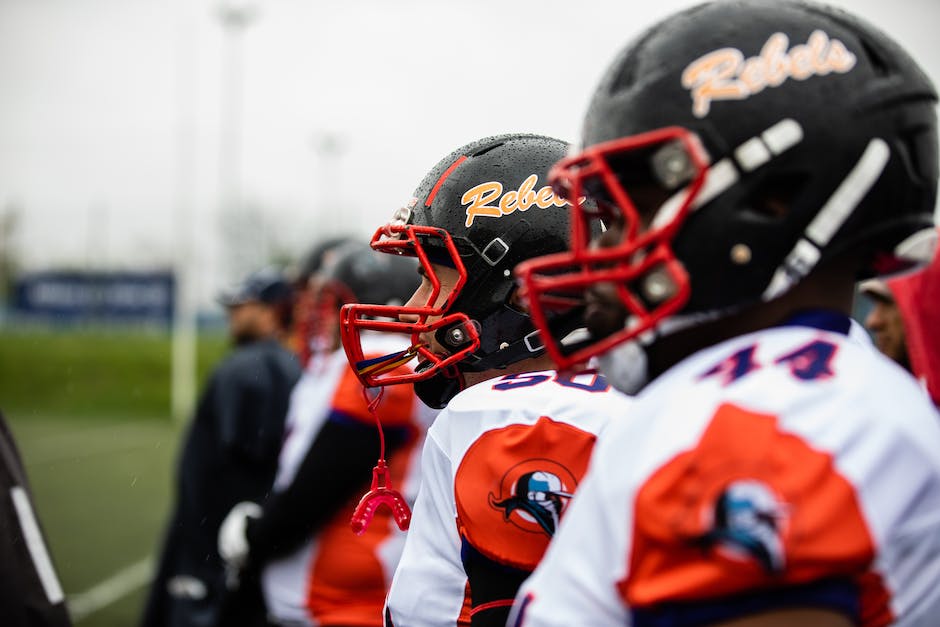Cannabis, which is still illegal at the federal level in the United States, has gained widespread acceptance in recent years for its potential medical benefits. NFL players, in particular, are turning to cannabis for pain management and recovery. The physical demands of football often lead to painful injuries that require long periods of rest and rehabilitation. While prescription painkillers, such as opioids, have long been the go-to solution, they come with a host of side effects and potential for addiction. In contrast, cannabis, particularly CBD, has shown promise in reducing pain and inflammation without the negative side-effects associated with other medications. In this article, we explore why NFL players are turning to cannabis and the potential benefits and risks of its use.
Discuss the high prevalence of pain and injuries in football (3)
Football is known for its high impact, intense adrenaline-fueled gameplay, and fast movements, making it one of the most physically demanding sports globally. However, with such high-impact gameplay, injury risks are equally high. NFL players often face an array of injuries, ranging from minor ones such as sprains and strains to more severe ones like fractures, torn ligaments, and head injuries such as concussions. These injuries can often lead to chronic pain and long-term health issues, affecting the quality of life and performance. As a result, NFL players are always in search of effective pain management and recovery methods to keep them in peak physical condition.
Explain how many NFL players are turning to cannabis as a natural remedy for pain and recovery (4)
It’s no secret that NFL players put a lot of wear and tear on their bodies throughout the season, leading to injuries and chronic pain that can affect their performance both on and off the field. In recent years, an increasing number of players have turned to cannabis as a natural remedy for pain and recovery. According to interviews and surveys conducted by The Athletic and ESPN, it is estimated that up to 50% of NFL players use cannabis to treat pain and aid their recovery. While it is still prohibited by the league, many players believe that cannabis is a safer and more effective alternative to traditional painkillers and opioids, which can be highly addictive and have detrimental long-term effects. More and more NFL players are advocating for the league to reconsider its stance on cannabis, citing the plant’s potential to not only alleviate pain, but also aid in traumatic brain injury recovery and reduce anxiety and stress.
Address the stigma surrounding cannabis and how it is slowly being lifted in the sports world (5)
As many people know, there is a long-standing stigma surrounding cannabis use. This stigma has historically made it difficult for professional athletes to use cannabis in any capacity, even for medicinal purposes. However, recent shifts in society’s attitudes towards the drug suggest that this stigma may be lifting. In fact, numerous NFL players have spoken out about their use of cannabis, particularly for pain management and injury recovery. These players, who are often looked up to as role models, are helping to break down the barriers and misconceptions surrounding cannabis use. With more and more athletes publicly advocating for its benefits, it is becoming increasingly clear that cannabis can be a safe and effective tool for addressing pain and promoting healing.
Provide examples of NFL players who have publicly advocated for the use of cannabis in pain management, such as Eugene Monroe and Jake Plummer (6)

Eugene Monroe, a former offensive tackle for the Baltimore Ravens, has been vocal about his support for using marijuana to manage pain. In 2016, he made headlines when he became the first active NFL player to call on the league to remove cannabis from its list of banned substances. Monroe has credited cannabis for helping him manage the chronic pain he experienced during his playing career.
Jake Plummer, a retired quarterback who played for the Denver Broncos, has also been an advocate for cannabis in pain management. Plummer has described how he turned to cannabis to manage the physical and emotional pain he experienced after his retirement from the NFL.
These NFL players are not alone in their support of cannabis. More and more current and former players are speaking out about the need for safer and more effective pain management options in the NFL. As public opinion and scientific research continue to shift in favor of cannabis, we may see a significant change in the way the NFL approaches the use of this plant for pain management and recovery.
Highlight the potential benefits of cannabis as a safer alternative to prescription painkillers, which can lead to addiction and long-term health problems (7)

When it comes to managing pain and promoting recovery, NFL players have traditionally relied on prescription painkillers. But with growing concerns about the risk of addiction and long-term health problems associated with these drugs, many players are now turning to cannabis as a safer alternative. Studies have suggested that cannabis can be effective at treating chronic pain, reducing inflammation, and easing muscle spasms (7). Moreover, unlike prescription painkillers, cannabis is not associated with the same risk of addiction or overdose. While the NFL continues to prohibit the use of cannabis among its players, there is growing evidence to suggest that the drug can play an important role in helping athletes manage pain and promote recovery, all while avoiding the risks associated with prescription painkillers.
Discuss the limitations and difficulties faced by players who want to use cannabis due to federal laws and NFL regulations (8)

Despite the growing acceptance and use of cannabis as a powerful tool to aid in pain management and recovery, federal laws and NFL regulations continue to create obstacles for NFL players seeking potential relief. Although marijuana is legalized in several states, it remains an illegal substance under federal law. Moreover, the NFL is yet to acknowledge marijuana’s medicinal benefits officially, and players are prohibited from using cannabis. This ban on cannabis use by NFL players creates several challenges for players who want to benefit from cannabis’s potential therapeutic effects. Since NFL drug tests are mandatory, a positive result for cannabis use could trigger fines and suspensions for players, discouraging players from seeking cannabis as a safer alternative to the opioid painkillers commonly prescribed in the NFL. Clearly, the limitations and difficulties faced by players who want to use cannabis necessitate a more comprehensive conversation about the role of cannabis in pain management and recovery in the NFL.
Outline the current policies and testing procedures in place for cannabis use in the NFL (9)
Currently, the NFL prohibits the use of cannabis for any reason, both recreationally and medicinally. The league conducts regular drug tests and imposes harsh penalties for violating its substance abuse policies, including suspensions and fines. However, the league has shown some leniency towards players who test positive for cannabis, particularly if they have a medical prescription for it. In 2019, the NFL and NFL Players Association announced a new drug policy that raised the threshold for a positive test and eliminated suspensions for positive tests for cannabis alone. The policy also made it easier for players to seek treatment and counseling for substance abuse issues. Despite this, many players believe that the league’s policies are too harsh and outdated, and are advocating for more progressive views on cannabis use in professional sports.
Address the need for further research and education on the potential benefits and drawbacks of cannabis use for NFL players (10)

As more and more NFL players turn to cannabis for pain relief and recovery, there is a pressing need for further research and education on the potential benefits and drawbacks of its use. While some studies have suggested that cannabis can help alleviate chronic pain and inflammation, there is still much that researchers do not know about its efficacy and safety. Additionally, many NFL players may not understand the nuances of proper dosing, potential side effects, or interactions with medications they may be taking. Therefore, it is important for medical professionals, team trainers, and NFL leadership to prioritize research and education on cannabis use in order to ensure that players are making informed decisions about their health and wellness. In this way, we can both support players in their quest for pain relief and recovery while also mitigating any potential risks associated with cannabis use.


